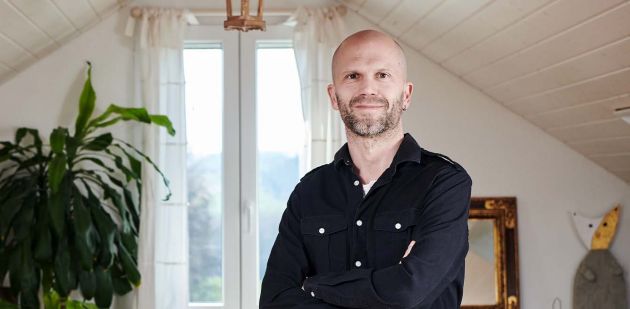Pascal Wagner-Egger studies collective beliefs, including those linked to conspiracy theories. He explains the human penchant for misinformation.

Did the Covid-19 pandemic have an impact on our collective image of science? It has considerably exacerbated pre-existing attitudes,” says Pascal Wagner-Egger, a lecturer and researcher in social psychology at the University of Fribourg. While most people’s trust in science has remained fairly stable, he notes that defiance grew with the second wave. “There was definitely a lot of noise, but it came from a minority. This minority was already distrustful of allopathic medicine and has become even more so.
These people are generally more into alternative medicine.”
Before the pandemic, vaccines were already crystallising two phenomena, the researcher says: the intuitive fear of injecting oneself with a weak form of a disease to fight a virus, fearing possible side effects, and the fact that the positive effect of vaccines is no longer noticeable when they have already completely eradicated several diseases. “Older people will remember that people were dying of polio in Switzerland 60 years ago. In Africa, anti-vaxxers don’t exist because they see the ravages of disease, which are much more serious than the potential consequences of vaccines.”
The change that came with the development of social media is that disinformation circulates faster and more broadly, Pascal Wagner-Egger says. “The internet is an immense sounding board for rumours and falsehoods. Sensationalist information travels fast and is shared much more than the news. However, corrections circulate more slowly and don’t reach everyone.”
In his recent book, Psychologie des croyances aux théories du complot – Le bruit de la conspiration (Psychology of Belief in Conspiracy Theories – The Noise of Conspiracy), he points out that 54% of the YouTube videos on Covid-19 went against the majority of scientific studies. “This is the perfect example of the overexposure of misinformation online, as fake news and other anti-science statements only have the internet as a channel for circulation.”
On the web, anyone can express themselves, both the many non-experts and the far fewer actual experts. And often the non-experts have more time on their hands to do so,” he says. “So you end up with a lot of untrue information.” The advent of the internet has also led to the rise of conspiracy theories.
Conspiracy theory – which consists of serious accusations without adequate supporting evidence – sends a message of revenge against elites, he says. “The further down the social ladder you go, the more extreme you are politically (especially on the far right), the more likely you are to buy into these theories, because they explain why you are disadvantaged and provide a scapegoat.”
Human beings believe too quickly, taking a few cases, in an intuitive way of thinking inherited from our ancestors whose main goal was survival, and they cling to their beliefs both individually and socially, Pascal Wagner-Egger explains. “This is cognitive bias. These biases explain why we are drawn to misinformation related to dangers or lies. And disseminating misinformation on a global scale obviously produces catastrophic effects.”